BUDDHISTDOOR IN SPANISH
You can read the third part of this article here
Title: Samsara (“Samsara”)
Diretor: Pan Nalin
Year: 2001
Country: India
Language: ladakhi
Genre: film, drama
Length: 145 minutes
Tradition: Buddhism
Theme: Spirituality, desire, inner search.
Synopsis: This drama explores the internal struggle between earthly desire and the search for enlightenment. The film follows the story of Tashi, a Buddhist monk who, after years in a solitary retreat in the Himalayas, returns to his monastery and finds himself caught between his monastic life and the outside world. As Tashi confronts his human desires and falls in love with a young peasant girl, he must decide between following the path of renunciation or embracing worldly life.
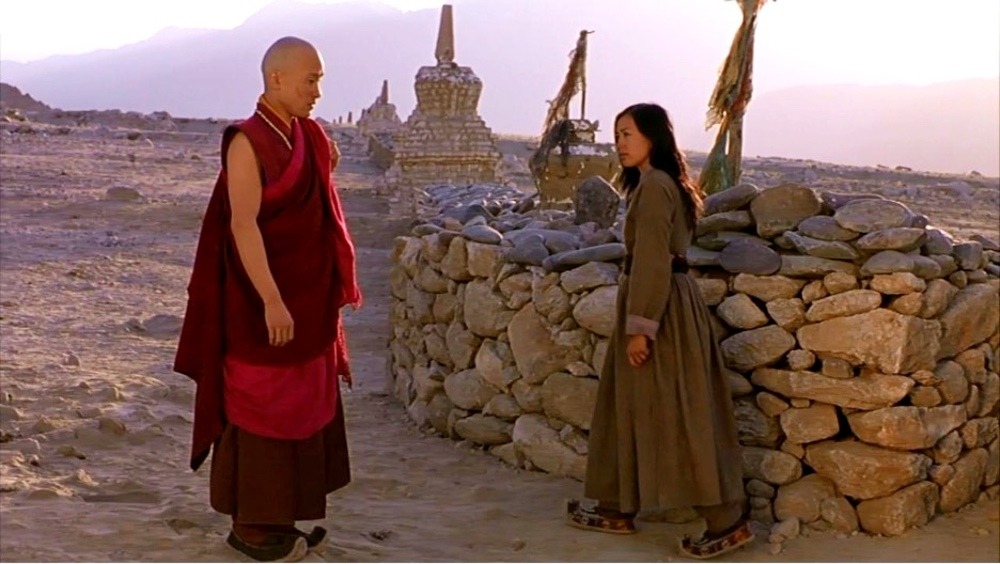
Title: Sandcastles: Buddhism and Global Finance (“Sand Castles: Buddhism and Global Finance”)
Diretor: Alexander Oey
Year: 2005
Country: USA
Language: English
Genre: documentary
Duration: [information not available]
Tradition: Tibetan nudism
Theme: Economy, Ethics, Spirituality.
Synopsis: This documentary considers the intersection between Buddhist principles and the world of global finance. Through interviews with economists, spiritual leaders and professionals in the financial sector, the film explores how Buddhist values of compassion, interdependence and detachment can provide a unique perspective on the functioning of the global financial system.
————————————————————————————————
Title: Saving Mes Aynak (“Saving Mes Aynak”)
Diretor: Brent E. Huffman
Year: 2014
Country: U.S. UU.
Language: English
Genre: Documentary
Duration: [Information Not Available]
Tradition: Buddhism
Theme: Archaeology, Cultural Heritage, Conflict.
Synopsis: This documentary chronicles the fight to save Mes Aynak, an ancient Buddhist archaeological site in Afghanistan, threatened by a Chinese mining project. Through archaeologists and activists, the film explores efforts to preserve this ancient heritage in the face of economic and political pressures, raising questions about cultural protection in conflict zones.
————————————————————————————————-
Title: Seven Wonders of the Buddhist World (“The Seven Wonders of the Buddhist World”)
Diretor: Faris Kermani
Year: 2011
Country: United Kingdom
Language: English
Genre: documentary
Length: 55 minutes.
Tradition: Buddhism
Theme: History, Culture, Spirituality.
Synopsis: This documentary takes viewers on a journey through seven of the world's most iconic and sacred Buddhist sites. From the ancient Mahabodhi temples in India to the Big Buddha statue in Hong Kong, the film explores places of great spiritual and historical importance. Through stunning images and interviews with experts, it offers an in-depth view of Buddhist teachings, their evolution and their impact on modern society.
————————————————————————————————-
Title: Seven Years in Tibet
Diretor: Jean-Jacques Annaud
Year: 1997
Country: USA
Language: English
Genre: film, drama
Length: 139 minutes
Tradition: Tibetan Buddhism
Theme: Dalai Lama, Tibetan culture, personal transformation.
Synopsis: The film follows Heinrich Harrer, an Austrian mountaineer played by Brad Pitt, who escapes from a British prison camp during World War II and arrives in Lhasa, Tibet. There, he develops a transformative friendship with the young Dalai Lama. Through this relationship, Harrer learns about Tibetan culture, experiences profound personal change and confronts his own prejudices. The film explores culture shock and spiritual growth in the context of Tibet before the Chinese invasion.
————————————————————————————————-
Title: Shaolin (“Shaolin”)
Diretor: Benny Chan
Year: 2011
Country: China
Language: Chinese
Genre: action
Length: 131 minutes
Tradition: Buddhism
Theme: martial arts
Synopsis: The plot takes place in China during a period of political and military upheaval, centered on Hou Jie, an ambitious and proud warlord. After facing a betrayal that costs her family, Hou Jie seeks refuge in a Shaolin temple. In that place, he adopts the principles of Buddhism and the martial arts, allowing him to become a wiser and more compassionate person.
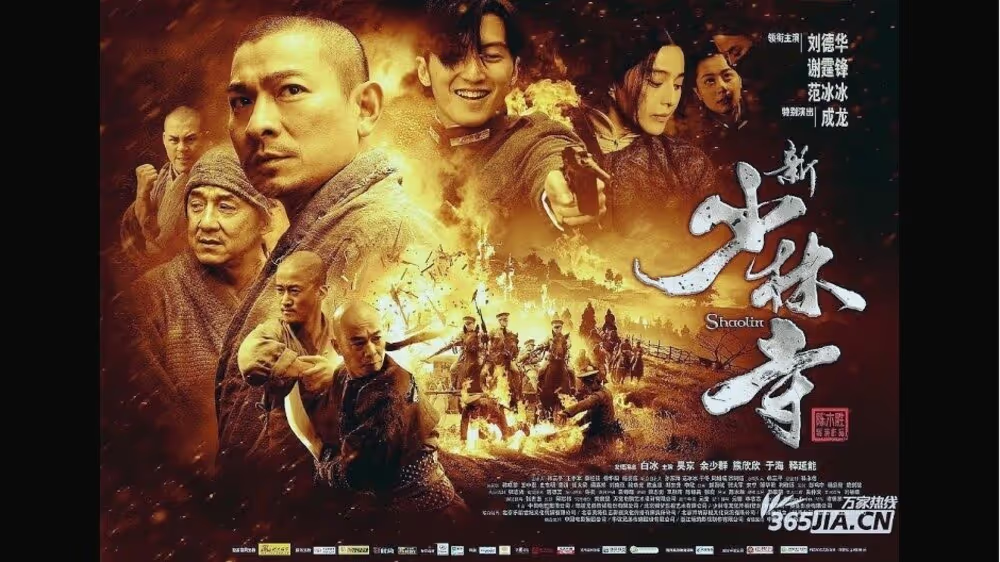
Title: Shinran: Path to Purity (“Shinran: Road to Purity”)
Diretor: Rentarō Mikuni
Year: 1987
Country: Japan
Language: Japanese
Genre: drama
Length: 140 minutes
Tradition: Japanese Buddhism
Theme: addresses issues of faith, personal transformation and the search for spiritual purity.
Synopsis: The film focuses on the life of Shinran, an influential 13th-century Japanese Buddhist monk. The story chronicles his spiritual journey and his development of the Jōdo Shinshū school of Buddhism, which focuses on devotion to Amida Buddha as a path to enlightenment.
Title: Shugendō Now (“Shugendō Now”)
Director:
Year: 2010
Country: Japan
Language: Japanese
Genre: documentary
Duration: Buddhism
Tradition: Japanese Buddhism
Theme: search for authenticity and the understanding of universal interdependence
Synopsis: Immersive documentary that takes the viewer to remote mountains of Japan, where practitioners of the ancient art of Shugendō embark on a path of asceticism and transformation. This syncretic practice combines elements of Shamanism, Shinto, Taoism and Tantric Buddhism, and focuses on the search for truth through intense rituals and meditations. As devotees climb sacred mountains, they purify their senses and revitalize their energy, finding a deep connection with nature and all living beings.
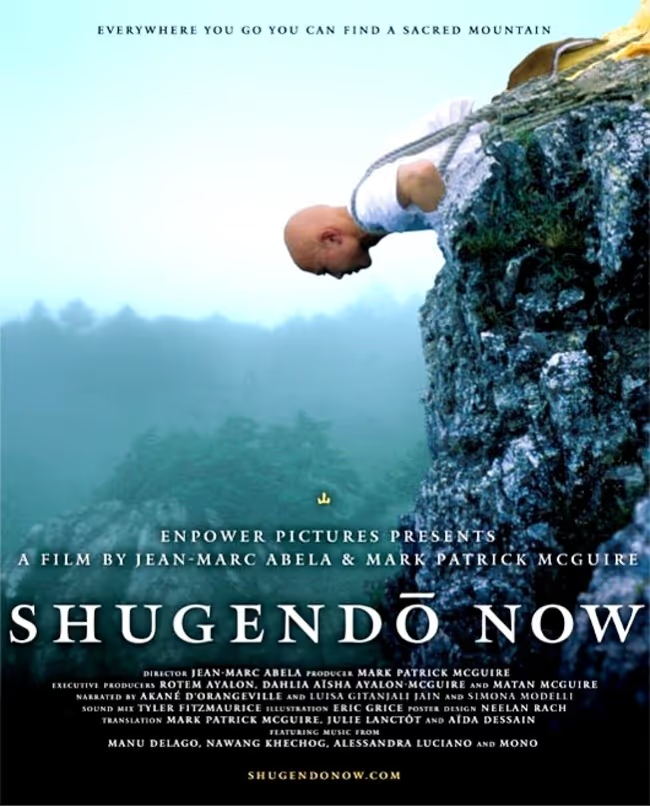
Title: Siddhartha (“Siddhartha”)
Diretor: Conrad Rooks
Year: 1972
Country: USA
Language: English
Genre: drama, philosophy
Length: 89 minutes
Tradition: Buddhism
Theme: The film deals with issues of self-discovery, denial and the search for inner truth, providing a philosophical reflection on existence and spirituality.
Synopsis: Inspired by the famous novel by Hermann Hesse, this film chronicles Siddhartha's spiritual journey, during which he meets various characters that impact his path, such as a wise boatman, a prosperous merchant and the courtesan Kamala.
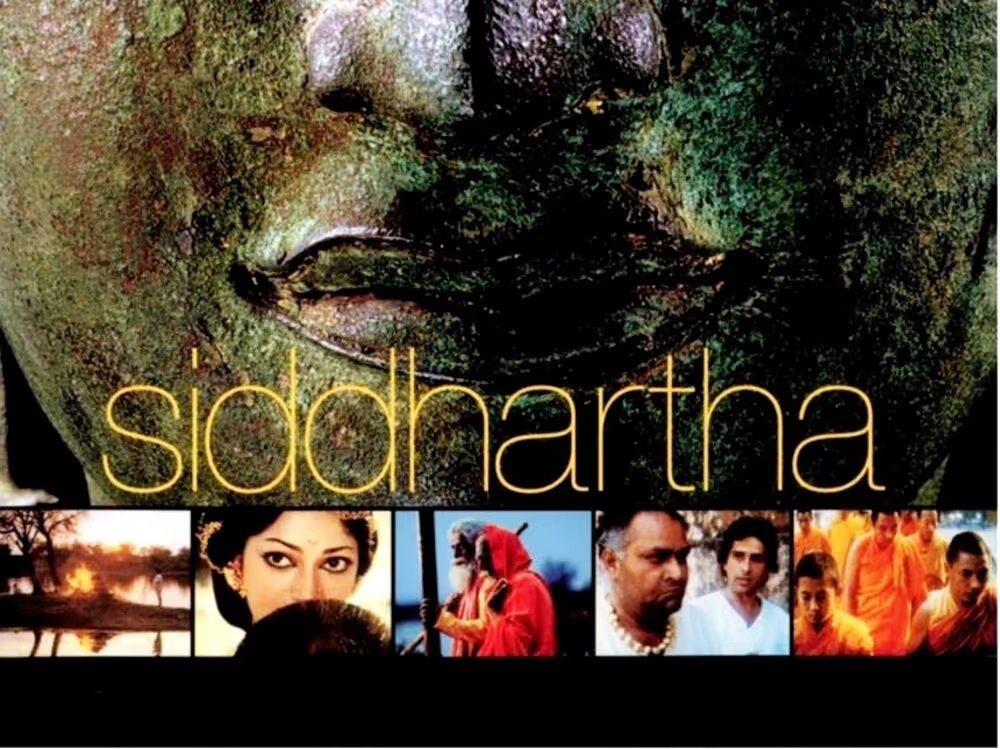
Title: Sisters of Ladakh (“Sisters of Ladakh”)
Diretor: Ricardo Lobo
Year: 2003
Country: India
Language: English
Genre: documentary
Length: 52 minutes
Tradition: Buddhism
Theme: the role of women in Buddhism and life in women's monasteries.
Synopsis: This documentary examines the daily life of Buddhist nuns in a convent in Ladakh, a Himalayan region located between Tibet and India. Through interviews with various nuns, questions about Buddhism and the position of women in society are considered.
Title: Sky Dancer (“Sky Dancer”)
Diretor: Jody Kemmerer
Year: 2011
Country: USA
Language: Tibetan
Genre: documentary drama, biography
Length: 45 min
Tradition: Tibetan Buddhism
Synopsis: This is a documentary that explores the daily life and teachings of one of the great teachers of Tibetan Buddhism. In a world where ethnic and political tensions divide people, the film takes us to a community where Chinese and Tibetan students study together and are treated as equals.
Title: Souls of Zen (“Souls of Zen”)
Diretor: Tim Graf
Year: 2012
Country: Germany
Language: German
Genre: documentary
Length: 1 hour and 29 minutes
Tradition: Zen Buddhism
Theme: “Souls of Zen” investigates how these spiritual and cultural traditions of Japan affect the way in which Japanese people face and overcome trauma and loss, highlighting the resilience and calm that characterize their reaction to adversity.
Synopsis: The Japanese response to the March 2011 Tōhoku earthquake and tsunami has been described by Western media as “stoic”. This behavior is profoundly influenced by Buddhist traditions, which are an integral part of the code of conduct in Japan.
Title: Spring Summer Fall Winter... And Spring (“Spring, Summer, Fall, Winter... and Spring”)
Diretor: Kim Ki-duk
Year: 2003
Country: South Korea
Language: Korean
Genre: drama
Length: 103 minutes
Tradition: Zen Buddhism
Theme: deals with spiritual development, redemption and the cyclical nature of existence.
Synopsis: The story examines the life cycle through a Buddhist monastery that floats on a lake. It is structured around the seasons of the year, each one symbolizing a different phase in the protagonist's life. The calm and visually striking environment enhances the contemplative and philosophical tone of the film, offering a reflection on the transience and continuity of life.
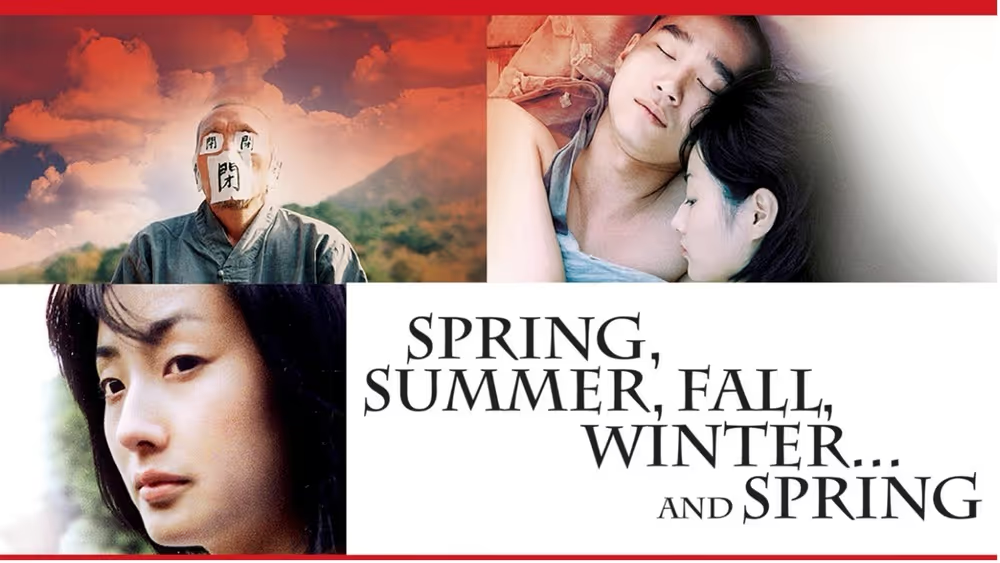
Title: States of Grace (“States of Grace”)
Director: Helen S. Cohen and Mark Lipman.
Year: 2014
Country: USA
Language: English
Genre: documentary
Length: 74 minutes.
Tradition: Buddhism
Theme: healing, transformation and the resilience of the human spirit.
Synopsis: Recounts the experience of Dr. Grace Dammann, a doctor who has dedicated her life to caring for patients with AIDS. His existence is turned upside down after a head-on accident on the Golden Gate Bridge, causing him serious injuries. The documentary follows her extensive and arduous recovery process, both physically and emotionally, as she faces the challenges of adapting to her new situation. The documentary relates to Buddhism primarily through the perspective and personal practices of Dr. Grace Dammann.
Title: Supermonk (“Supermonk”)
Diretor: Shenang Gyamjo Tamang
Year: 2018
Country: Nepal
Language: Nepali
Genre: documentary
Length: 18 minutes
Tradition: Buddhism
Theme: Cultivation of Buddhist values
Synopsis: The journey of an eleven-year-old monk who discovers how to incorporate the Buddha's teachings of compassion and joy in an unusual way.
Title: Svaha: The Sixth Finger (“Svaha: The Sixth Finger”)
Diretor: Jang Jae-hyun
Year: 2019
Country: South Korea
Language: Korean
Genre: thriller and mystery
Length: 122 minutes
Tradition: Buddhism
Theme: Investigation of suspected religious groups and their possible illegal activities
Synopsis: Park specializes in revealing the activities of suspicious religious cults. He is hired to observe the cult called Deer Mount. At the same time, Police Captain Hwang is leading the investigation of a murder, in which the main suspect is linked to the Deer Mount cult. The story unfolds between the search for truth and the investigation into the beliefs and practices of this group, revealing dark secrets that unite both cases.
Title: Tashi and the Monk (“Tashi and the Monk”)
Diretor: Andrew Hinton & Johnny Burke
Year: 2014
Country: Bhutan
Language: Dzongkha
Genre: documentary
Length: 39 minutes
Tradition: Buddhism
Theme: promotion of Buddhist values
Synopsis: A man founds a special community for abandoned children, with the goal of providing them with the typical joys and experiences of childhood. Through this initiative, we seek to cultivate Buddhist values and provide a loving and enriching environment for children.
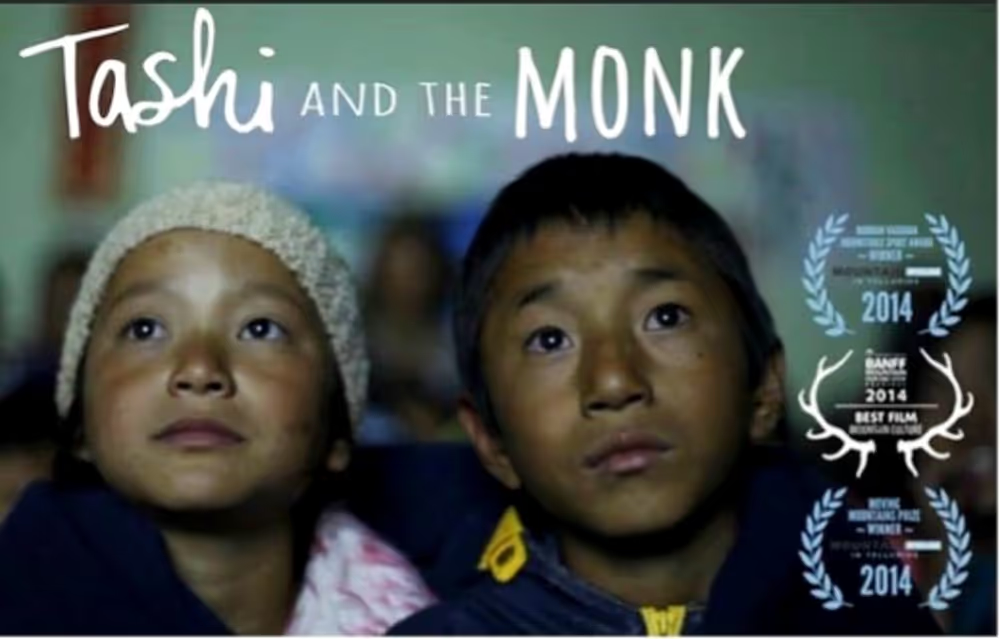
Title: Ten Questions for the Dalai Lama (“Ten Questions for the Dalai Lama”)
Diretor: Rick Ray
Year: 2006
Country: USA
Language: English
Genre: documentary
Length: 1 hours 25 minutes
Tradition: Tibetan Buddhism
Theme: Dalai Lama
Synopsis: The documentary follows Rick Ray on his trip to India with the objective of interviewing Tenzin Gyatso. Throughout the narrative, the film alternates between the present and recent episodes from the past, taking advantage of various stages of the journey to explore the personal story of Tenzin Gyatso, the process of choosing a Dalai Lama and Gyatso's journey into exile.
Title: The American Rinpoche (“The American Rinpoche”)
Diretor: Nikki Appino
Year: 2014
Country: USA
Language: English
Genre: documentary
Length: 55 minutes
Tradition: Tibetan Buddhism
Synopsis: It presents the life of Gelek Rimpoche, a former Tibetan monk who became a citizen of the United States. Originally from the mythical Shangri-La, his life has been remarkable, spanning different continents, traditions and cultures. Through historical images of ancient Tibet, taken by Rimpoche's father in the 1930s and 1940s, the film investigates the connection between his work as a current spiritual teacher and the influence of Tibetan myths and practices on Americans seeking guidance in an increasingly complex world.
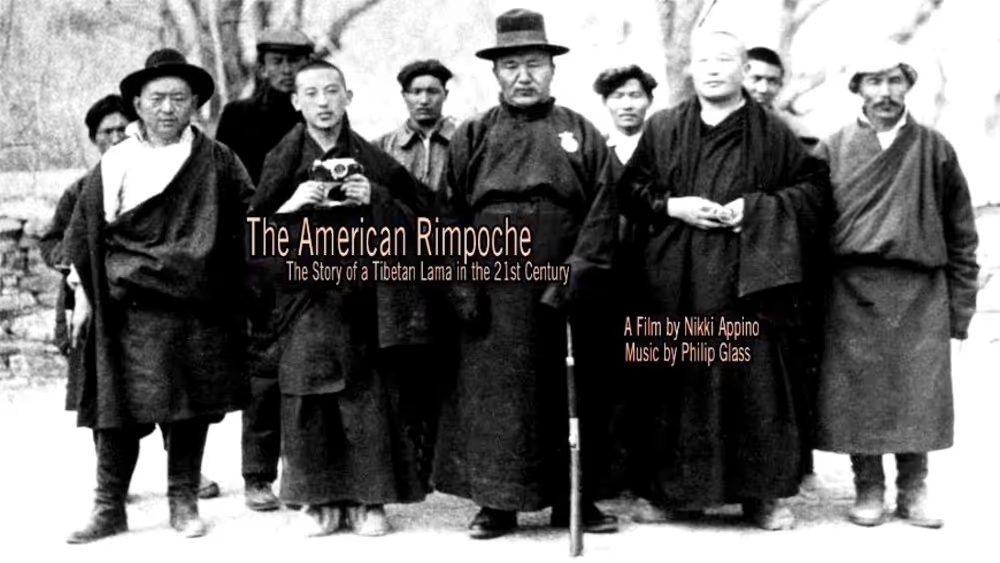
Title: The Buddha Collapsed Out of Shame (“The Buddha collapsed out of shame”)
Diretor: Hana Makhmalbaf
Year: 2007
Country: Iran
Language: Persian
Genre: drama
Length: 81 minutes
Tradition: Buddhism
Theme: addresses issues such as war, education, childhood innocence and the effects of religious extremism on daily life.
Synopsis: The plot follows Baktay, a six-year-old Afghan girl who lives in the Bamiyan region, where the Taliban destroyed the iconic Buddha statues. Motivated by her neighbor Abbas, who attends school, Baktay decides she also wants to learn to read and write. However, their path to education is fraught with challenges, from scarce resources to confrontation with other children playing war, reflecting the violence that surrounds them.
Title: The Buddha: The Story of Siddhartha (“The Buddha: The Story of Siddhartha”)
Diretor: David Grubin
Year: 2016
Country: USA
Language: English
Genre: documentary
Length: 120 minutes
Tradition: Buddhism
Theme: examines the life and teachings of Siddhartha Gautama and his influence on today's world.
Synopsis: The film chronicles the life of Siddhartha Gautama, from his childhood as a prince to his transformation into the Buddha. Through interviews with experts, images of Buddhist art and historical stories, the essential principles of Buddhism and their relevance in the contemporary context are analyzed. In addition, the documentary includes reflections on how the Buddha's teachings can provide answers to the personal and global challenges we face today.
Title: The Burmese Harp (“The Burmese Harp”)
Diretor: Kon Ichikawa
Year: 1956
Country: Japan
Language: Japanese
Genre: drama
Length: 116 minutes
Theme: war, peace, redemption and the search for humanity in times of conflict.
Synopsis: Set in the final days of World War II, the film tells the story of a platoon of Japanese soldiers in Burma. Mizushima, a harp-playing soldier, separates himself from his unit and embarks on a spiritual journey after witnessing the devastation and suffering caused by the war. While posing as a Buddhist monk, he faces a moral dilemma between his duty to his companions and his desire to dedicate his life to burying the dead.
Title: The Civilization of Maxwell Bright (“The Civilization of Maxwell Bright”)
Diretor: David Beaird
Year: 2005
Country: USA
Language: English
Genre: drama
Length: Approximately 108 minutes
Tradition: Buddhism
Theme: redemption, love, spirituality, and the impact of Buddhism on a person's life.
Synopsis: The film tells the story of Maxwell Bright, a strong-willed man with misogynistic attitudes, who decides to “acquire” an obedient wife from China to serve him. However, his new wife, Mai Ling, is a woman with a deep spirituality and Buddhist faith. Through her patience and wisdom, Mai Ling begins to influence Maxwell, leading him to reflect on his way of life and his beliefs. The relationship between them begins a path of self-discovery and redemption for Maxwell, as he learns about authentic love and inner peace.
—————————————————————-
Title: The Cup (“The Cup”)
Diretor: Khyentse Norbu
Year: 1999
Country: Bhutan
Language: Dzongkha
Genre: comedy
Length: 93 minutes
Tradition: Tibetan Buddhism
Theme: culture, globalization, youth, passion for soccer, and life in a Buddhist monastery.
Synopsis: The film chronicles the experiences of a group of young Tibetan monks who reside in a remote monastery in India and who develop an enthusiasm for soccer, especially for the World Cup. The protagonist, Orgyen, is a young monk with a mischievous character who, together with his companions, does everything possible to watch the world cup games, even if this goes against the monastery's rules. The story addresses the conflict between tradition and modernity, offering a humorous and moving vision of the influence of popular culture on monastic life.
—————————————————————-
Title: The Departure (“The Departure”)
Diretor: Lana Wilson
Year: 2017
Country: USA
Language: English
Genre: documentary
Length: 87 minutes
Tradition: Zen Buddhism
Theme: life, death, spirituality, suicide prevention, and the search for meaning.
Synopsis: The documentary follows Ittetsu Nemoto, a Japanese Zen Buddhist priest who is dedicated to helping people with suicidal tendencies find a new meaning in their lives. Through workshops and counseling sessions, Nemoto offers emotional and spiritual support to those in crisis. However, as he dedicates himself to saving others, Nemoto faces his own personal and health challenges, forcing him to reflect on the balance between his mission and well-being.
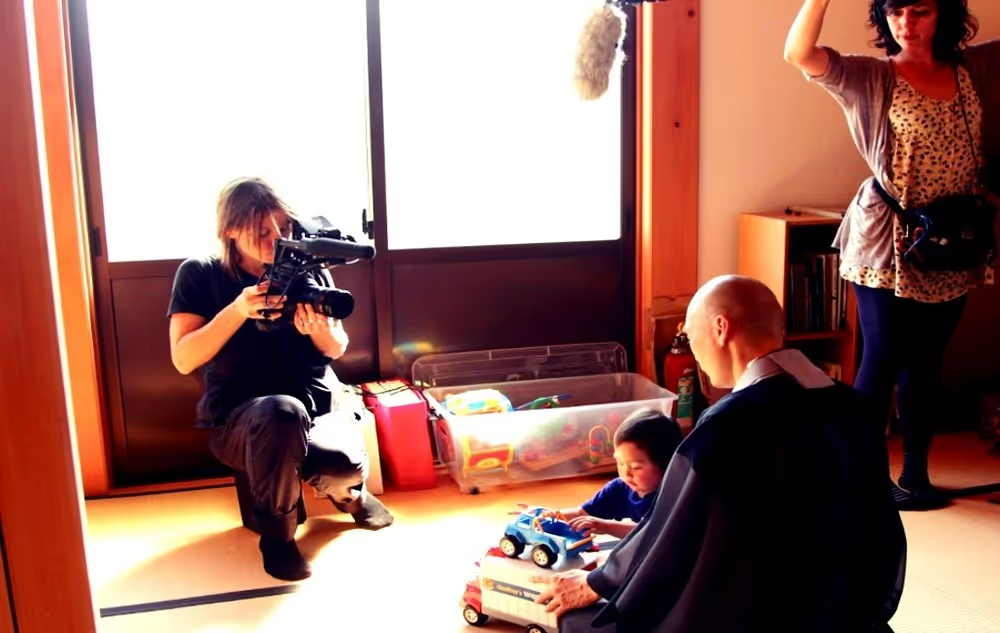
Title: The Dhamma Brothers (“The Dhamma Brothers”)
Diretor: Jenny Phillips, Anne Marie Stein, Andrew Kukura
Year: 2007
Country: USA
Language: English
Genre: documentary
Length: 76 minutes
Tradition: Buddhism
Theme: The documentary focuses on the practice of Vipassana meditation inside a maximum-security prison in Alabama. It deals in depth with the transformative impact of this practice on inmates and how it influences their behavior and life perspectives.
Synopsis: “The Dhamma Brothers” documents the experience of a group of prisoners in Donaldson prison who participate in an intensive 10-day Vipassana meditation course. Through interviews and observations, the film shows how this practice offers them a new vision of introspection and inner tranquility, challenging the difficult conditions of the prison environment. The documentary highlights the emotional and psychological changes experienced by inmates and raises questions about rehabilitation and the potential of meditation as a tool for personal transformation.
—————————————————————-
Title: The GateKeeper of Enmyoin (“The Keeper of Enmyoin”)
Diretor: Naoaki Maeda
Year: 2008
Country: Japan
Language: Japanese
Genre: documentary
Length: 95 minutes
Tradition: Buddhism
Theme: the life and practices of a Buddhist monk who serves as guardian of the Enmyoin temple. It focuses on Buddhist traditions and rituals, as well as on the monk's daily life and his interaction with the local community.
Synopsis: “The Keeper of Enmyoin” offers an intimate perspective on the life of a Buddhist monk in Japan, dedicated to preserving traditional practices and teachings at the Enmyoin temple. Through its daily routine and its commitment to the community, the documentary highlights the importance of spirituality and cultural continuity in the modern world. The film highlights the challenges and rewards of living a life centered on service and meditation in the context of an ever-changing society.
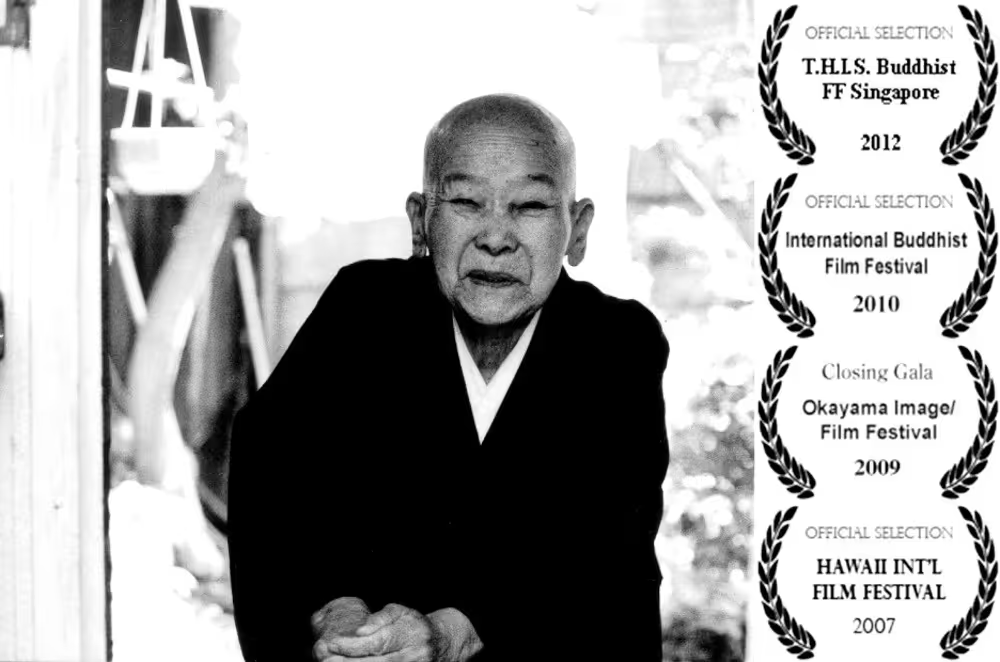
Title: The Golden Land of Myanmar (“The Golden Land of Myanmar”)
Diretor: Cathy Korson
Year: 2014
Country: Myanmar
Language: Burmese
Genre: documentary
Length: 1 hour and 3 minutes
Tradition: Buddhism
Theme: It deals with the preservation of Buddhist traditions in Suvananabhumi, Myanmar
Synopsis: This film takes viewers to Suvananabhumi, the Golden Land in the Mon state of Myanmar (Burma). This land has remained a hidden treasure, untouched by the modern world. The film shows rare images of their communities, the countryside and the ancient Buddhist pagodas, which have remained almost unchanged since Buddhism arrived more than 2500 years ago. It is a sanctuary that protects the practice and principles of Buddhist doctrine, which remain as simple and sublime as in ancient times. Travel to this place of peace, tranquility and compassion for a unique vision of an ancient Buddhist land.
—————————————————————-
Title: The Great Pilgrim (“The Great Pilgrim”)
Diretor: Jin Tiemu
Year: 2009
Country: China
Language: Chinese
Genre: documentary
Length: 98 minutes
Tradition: Buddhism
Theme: Buddhism, Pilgrimage, Spirituality, Tibetan Culture\
Synopsis: The documentary explores themes of Buddhism, pilgrimage, spirituality and Tibetan culture, following the journey of devout Tibetan Buddhists on their way to a sacred site. It highlights the devotion, resilience and search for enlightenment of pilgrims, as well as the strength they find in their faith and community. Through breathtaking landscapes and moments of reflection, the essence of pilgrimage is captured as an act of faith and personal transformation.
—————————————————————-
Title: The Last Dalai Lama? (“The Last Dalai Lama?”)
Diretor: Mickey Lemle
Year: 2016
Country: USA
Language: English
Genre: documentary
Length: 82 minutes
Tradition: Tibetan Buddhism
Theme: the life and teachings of the Dalai Lama, the continuity of the Dalai Lama's lineage, and the political and spiritual challenges facing Tibet.
Synopsis: The documentary explores the life of the 14th Dalai Lama, Tenzin Gyatso, addressing both his spiritual contributions and his role as a political leader in exile. Through intimate interviews and personal reflections, the film focuses on the Dalai Lama's concerns about the future of Tibet and the possibility that he may be the last Dalai Lama. The film also highlights his focus on compassion, forgiveness and the search for inner peace.
—————————————————————-
Title: The Lost World of Tibet
Diretor: Emma Hindley
Year: 2007
Country: United Kingdom
Language: English
Genre: documentary
Duration: 1 hour and 30 minutes
Tradition: Tibetan Buddhism
Theme: history
Synopsis: It presents unpublished archival material in color from the 1940s and 1950s in Tibet, showing life in the Himalayan kingdom. The images, which include religious ceremonies and scenes from daily life, are commented on by the current Dalai Lama, who offers his memories of that time.
—————————————————————-
Title: The Medicine Buddha (“The Medicine Buddha”)
Diretor: Benjamin D. Johns
Year: 2019
Country: Mongolia
Language: Mongolian
Genre: documentary
Duration: 1 hour and 50 minutes
Tradition: Tibetan Buddhism
Theme: Mongolian Buddhism
Synopsis: Narrated by Academy Award winner Sir Ben Kingsley, this documentary is a cinematic portrait of the renowned Mongolian Buddhist leader, Khamba Lama Natsagdorj. Faith and science are reconciled as we immerse ourselves in the Lama's tireless humanitarian efforts. The film is a valuable introduction to Mongolia's rich cultural and religious heritage, its customs and daily life. It also addresses Buddhist philosophy and traditional local medicine.
———————————————————————
Title: The Mindful Revolution (“The Conscious Revolution”)
Diretor: Samuel Stefan
Year: 2015
Country: USA
Language: English
Genre: documentary
Length: 59 minutes
Theme: mindfulness meditation
Synopsis: The transformation that mindfulness meditation has brought to the business environment, a critical examination that reveals what lies behind the façade of this modern spiritual phenomenon. This analysis seeks to unravel how this practice, which has become popular in the corporate world, is influencing work and personal dynamics, and what implications it has beyond its superficial appearance.
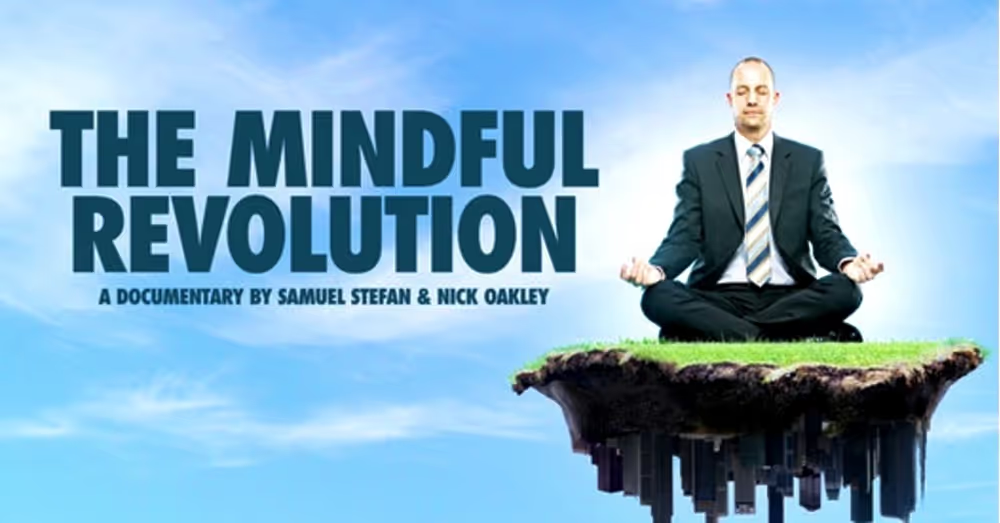
Title: The Monk (“The Monk”)
Diretor: Maw Naing Aung
Year: 2014
Country: Myanmar
Language: Burmese
Genre: documentary
Length: 1 hour 33 minutes
Tradition: Theravada Buddhism
Theme: internal conflict in the context of religious traditions and social changes.
Synopsis: Zawana, a teenager raised in a remote Burmese monastery by the strict abbot U Dahma, faces a crucial decision about his future. He must choose between staying to take care of Dahma, joining another novice looking for a more lenient monastery in the city, or pursuing a relationship with a local girl who moves to Yangon. This film explores Zawana's internal struggle, reflecting wider social changes in Burma.
———————————————————————
Title: The Next Guardian (“The Next Guardian”)
Director: Arun Bhattarai, Dorottya Zurbó
Year: 2017
Country: Bhutan
Language: Dzongkha
Genre: documentary
Length: 1 hour 15 minutes
Tradition: Tibetan Buddhism
Theme: clash between tradition and individual aspirations.
Synopsis: Tashi, 13, has only one desire: to stand out, either as a soccer player or as the future guardian of his family's monastery in Bhutan. In this context, the dreams of two generations are confronted in the microcosm of an ancient Buddhist monastery in Bhutan, when Gyembo, an ordinary teenager, is chosen by his father to be the next guardian of the family monastery.

Title: The Practice of the Wild (“The Practice of the Wild”)
Diretor: John J. Healey
Year: 2010
Country: USA
Language: English
Genre: documentary
Length: 53 minutes
Tradition: Zen Buddhism
Theme: Reflections on the interconnections between ecology and Zen Buddhism
Synopsis: This portrait of beat poet Gary Snyder highlights his connection to the nature and power of literature. It combines the bohemian life of San Francisco Bay, Zen Buddhism and reflections on ecology and spirituality, with the precision of a well-crafted stanza.
———————————————————————-
Title: The Tibetan Book of the Dead 1 & 2 (“The Tibetan Book of the Dead 1 and 2”)
Directors: Yukari Hayashi, Barrie McLean
Year: 1994
Country: Canada
Language: English
Genre: documentary
Length: 46 minutes (part 1) and 45 minutes (part 2)
Tradition: Tibetan Buddhism
Theme: teachings and practices related to ”The Tibetan Book of the Dead”.
Synopsis: This two-part documentary, narrated by Leonard Cohen, explores ”The Tibetan Book of the Dead”, an ancient spiritual guide to the Himalayas. The first part, ”A Way of Life”, investigates the history of the book, its application in India and its acceptance in the West, including interviews and rituals with the Dalai Lama. The second part, ”The Great Liberation”, follows a lama and a young monk as they guide a deceased to the afterlife, showing Tibetan beliefs about the state of ”Bard” after death.
———————————————————————
Title: Le Vénérable W (“The Venerable W”)
Diretor: Barbet Schoeder
Year: 2017
Country: France
Language: French
Genre: documentary
Length: 1 hour 47 minutes
Tradition: Tibetan Buddhism
Theme: tensions between Muslims and Buddhists in Myanmar.
Synopsis: A look at religious tensions between Muslims and Buddhists through the portrait of the Buddhist monk Ashin Wirathu, who heads the movement against Muslims in Myanmar.
————————————————————————
Title: The Yamaguchi story Buddhism and the family in contemporary Japan (“The story of Yamaguchi and family in contemporary Japan”)
Diretor: Jamie Hubbard
Year: 2009
Country: Japan
Language: Japanese
Genre: documentary
Length: 48 minutes
Tradition: Buddhism
Theme: Exploration of Buddhism in Contemporary Japan
Synopsis: This is a documentary about a family from Tokyo who discovers the Buddhist tradition. The film explores modern Buddhism in Japan, encouraging debates about doctrine, practice, and institutions. Although it focuses on the current state of Buddhism, it only shows some facets of its diversity in contemporary Japanese society.
———————————————————————
Title: The Yogis of Tibet (“The Yogis of Tibet”)
Diretor: Jeffrey M. Pill
Year: 2002
Country: USA
Language: English
Genre: documentary
Length: 1 hour and 17 minutes
Tradition: Tibetan Buddhism
Theme: discovery and revelation of Tibetan culture to the Western world.
Synopsis: For the first time, Tibetan monks have agreed to share their philosophy and allow their ancient practices to be filmed. Tibet, long shrouded in myths and isolated from the world, was a mystery to the West. When Western explorers entered Tibet in the late 19th century, they brought with them images that fueled stories about a mythical Shangri-La, a peaceful land governed by compassion and free from conflict.
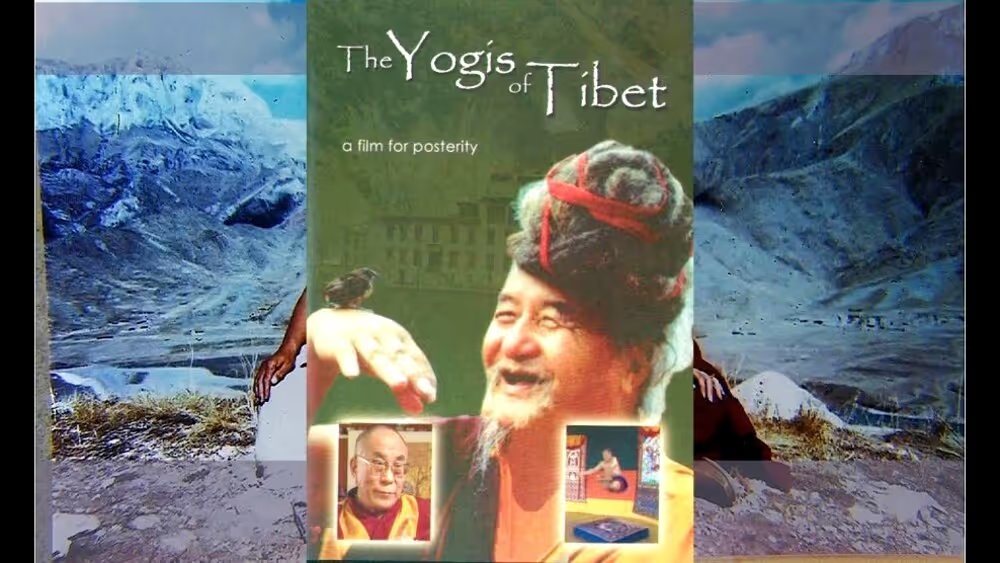
Title: Travellers and Magicians (“Travelers and Magicians”)
Diretor: Khyentse Norbu
Year: 2003
Country: Bhutan
Language: Dzongkha
Genre: drama
Length: 108 minutes
Tradition: Tibetan Buddhism
Theme: the conflict between personal aspirations and limiting circumstances,
Synopsis: The story follows Tshewang Dendup, a government official dissatisfied with his work in a remote area, who dreams of moving to the United States. You have heard that there you can earn more money picking fruits in a day than you earn in a month in your country. A friend who lives in New York has promised to help, but he needs to arrive before a close deadline. On his way to Thimphu, the capital, he loses the only public transport available that week. While waiting for another vehicle to pass by, hear a monk tell stories about magic and travel.
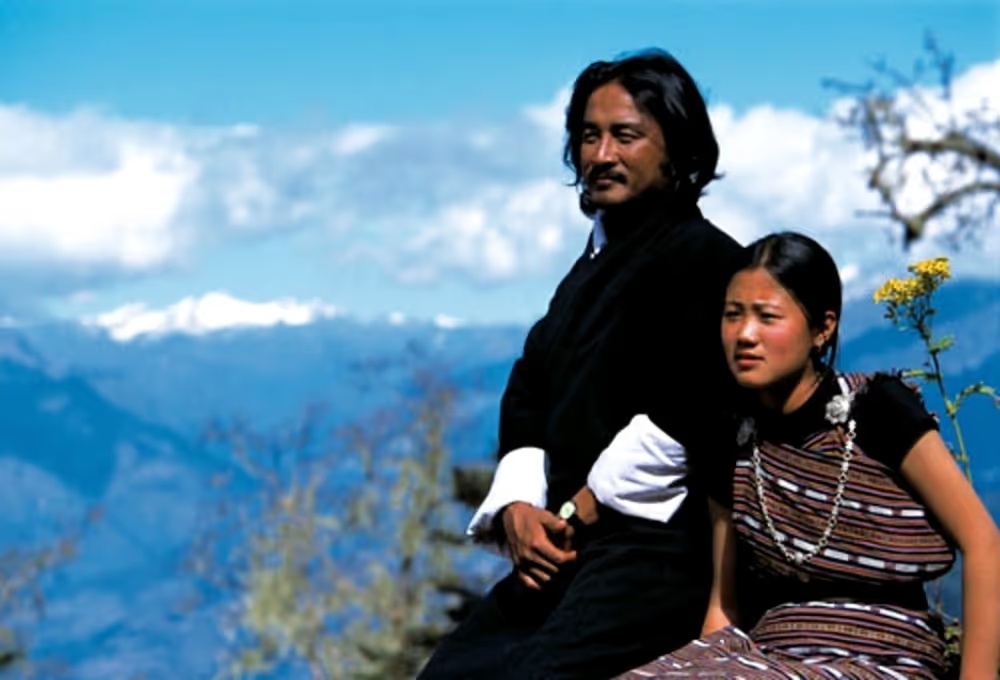
Title: Tulku
Diretor: Gesar Mukpo
Year: 2009
Country: Canada
Language: English
Genre: documentary
Length: 75 minutes
Tradition: Tibetan Buddhism
Theme: identity and culture shock.
Synopsis: The film examines Tibetan teachers called ”Tulkus”, recognized as reincarnated Buddhas. Since the 1970s, some tulkus have been born in the West, which has led them to face culture shock and identity confusion. These tulkus must balance their spiritual heritage with modern life, facing unique challenges in the process.








